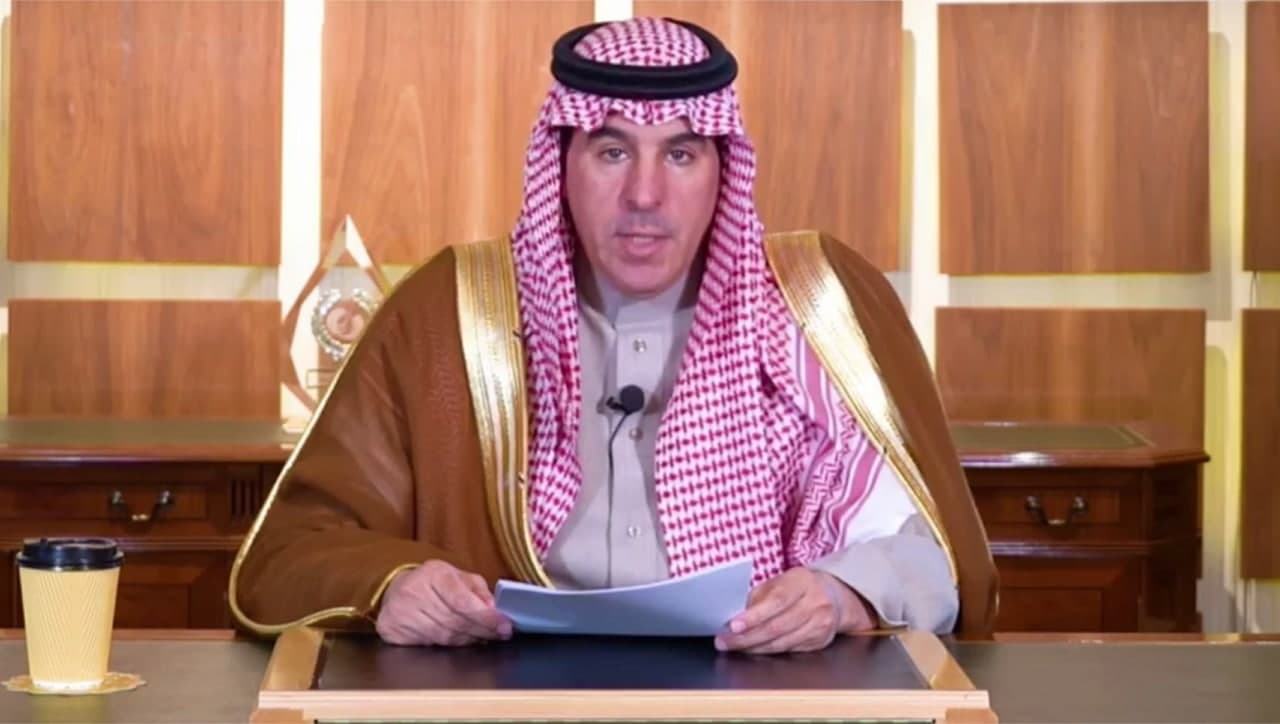
While male and female human rights defenders are in prisons, and in light of the continuing threat of death to dozens of lives and the systematic use of torture with the complete absence of means of accountability, the head of the official human rights commission, Awad Al-Awwad, spoke before the Human Rights Council about ‘historic reforms.’
In a remotely delivered speech at the high-level segment of the 46th Session of the Council, Al-Awwad said that Saudi Arabia has witnessed “90 major human rights reforms” considering them to be among the fruits of the Saudi Vision 2030 and the legislation announced by Crown Prince Mohammed bin Salman.
Al-Awwad considered that these steps, including the Supreme Court’s decision to stop flogging sentences and replace them with other penalties, are the codification of Islamic law, and that they are consistent with Saudi Arabia’s pledges under international law.
The European Saudi Organization for Human Rights believes that the speech of Al-Awwad is a tacit admission of Saudi Arabia’s extremist definition of Islamic law over the past years, which Saudi had previously sharply denied, especially before the Human Rights Council.
While Al-Awwad said that women’s rights have the largest part of the reforms through the adoption of a number of amendments aimed at achieving equality, his speech did not indicate the extent of implementation in light of the continuing harassment of women’s rights defenders, through arrest and threats, in addition to the continuing violence against women in all its forms with the absence of any mechanisms to stop it.
Al-Awwad’s speech touched on the rights of the child. He considered that the adoption of the Juvenile Law in 2018 was a “qualitative development”, and that “it specified how to deal with juvenile delinquents.” He added that the most significant thing was the replacement of the death penalty against children with a maximum prison sentence of 10 years. Al-Awwad said that the king issued a decree to apply this to all minors.
The organization notes that the royal decree, which was published in April 2020 and mentioned by Al-Awwad, is still ambiguous, as it has not been officially published. In addition, in April 2019, the Saudi government carried out the executions of six minors, after the issuance of the Juvenile Law, and a number of minors are currently facing the risk of execution. Considering the lack of confidence in Saudi Arabia’s statements and promises in addition of the possibility of manipulation, as happened in previous cases, fears remain over the lives of the detained minors.
Al-Awwad touched on the COVID-19 pandemic and the measures that have been taken to combat it, stating that Saudi Arabia has provided “people with every consideration, and set the finest examples in applying the principle of complementarity and indivisibility of human rights.”
The European Saudi Organization had monitored Saudi Arabia’s violations of a number of rights due to the pandemic measures. This includes its actions against the Ethiopian immigrants who were inhumanely detained without taking the epidemic into consideration, in addition to arbitrary arrests for expressing opinions.
The speech indicated that Saudi Arabia’s stance on the Palestinian cause is firm and supports the right of the Palestinian people, despite its continuing detention of Palestinian leaders due to their positions which are in support of the cause.
Although UN reports had confirmed the responsibility of Saudi Arabia and its coalition, which it leads, for killing children and civilians in Yemen, Al-Awwad claimed that his country is one of the most prominent advocates of stability and peace in Yemen.
The European Saudi Organization for Human Rights believes that the speech of the head of the official Human Rights Commission is a continuation of its role in whitewashing the Saudi government files, which has emerged recently. The speech also shows the lack of realism and the continuation of dealing with human rights files in the publicity campaigns without concrete reforms that contribute to protecting rights, preventing violations, and holding violators accountable.
